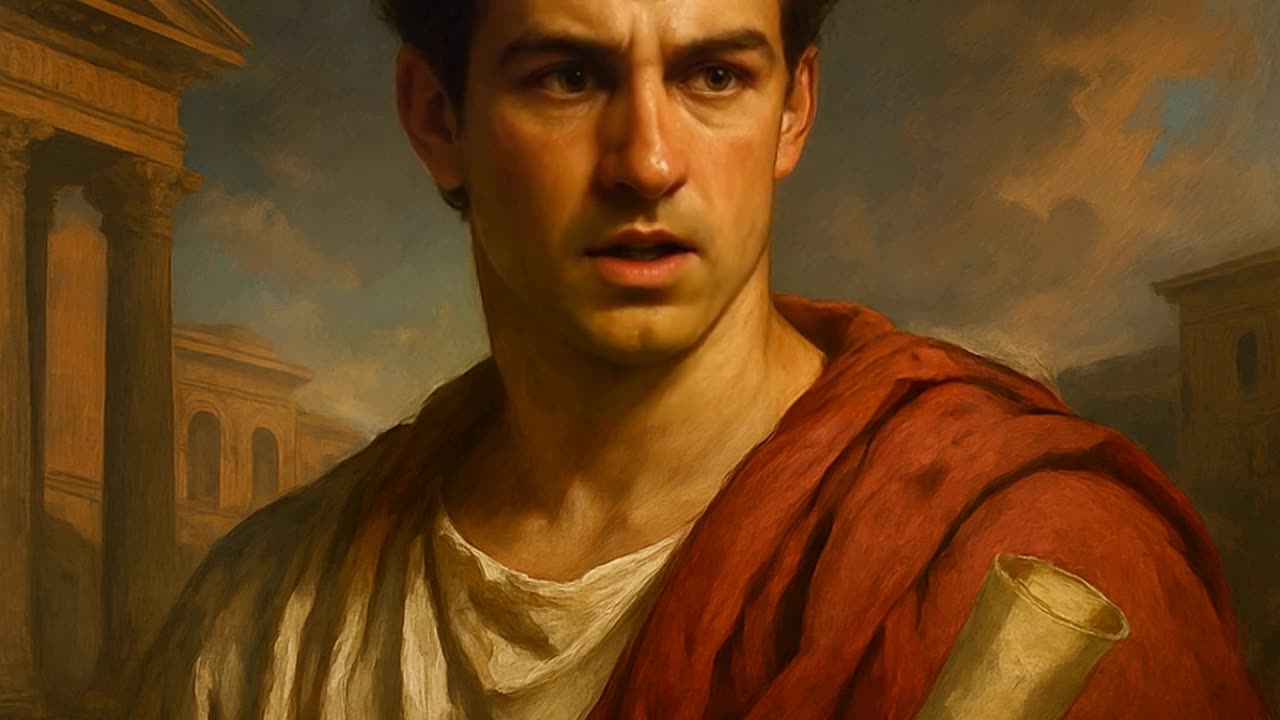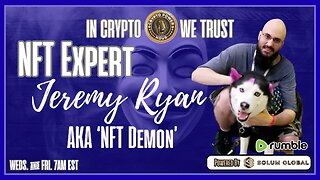Premium Only Content

Gauis Gracchus Tells His Story of Roman Reform Plans And How the Senate Turned Against Him
Presented to you by: http://www.HistoricalConquest.com
Read more on our blog at: https://www.historicalconquest.com/blog
My name is Gaius Gracchus, and like my older brother Tiberius, I tried to reform the Roman Republic and stand up for the poor and working-class citizens who were being left behind. My brother was killed for his beliefs, but that didn’t stop me from picking up where he left off. I believed that Rome should serve all its people—not just the rich and powerful—and I dedicated my life to that fight. Let me tell you how it all happened.
I was born around 154 BC into one of the most famous families in Rome. My mother was Cornelia Africana, daughter of the great general Scipio Africanus, and she raised me to value education, honor, and the Republic. My brother Tiberius was a hero to me, and when he was murdered in 133 BC for trying to pass land reform laws to help Rome’s poor, it changed me forever. I was just a young man then, but I promised myself I would carry on his mission.
Years later, I was elected tribune of the plebs, just like Tiberius had been. I knew the risks, but I also knew Rome was still in trouble. The rich were buying up land, pushing small farmers into poverty, and treating the state like their personal playground. I wasn’t afraid to challenge them. I introduced a whole series of laws—not just land reform, but also laws to lower food prices, give poor citizens more rights, and limit the power of corrupt senators. I even proposed citizenship for Rome’s Italian allies, which would have brought more people into the fold of Roman democracy.
A lot of regular people loved me for that. But the Senate? Not so much. I became their worst nightmare. I was bold, I spoke with passion, and I didn’t back down. I ran for a second term as tribune—yes, just like my brother—and I won. But the pressure was building, and my enemies were looking for a chance to bring me down.
That chance came in 121 BC, when violence broke out in Rome over one of my proposals. The Senate declared a "final decree"—basically martial law—and gave the consul, Lucius Opimius, the authority to do whatever it took to "protect the state." A mob came for me. I fled to a sacred grove outside the city, but I knew it was over. Rather than be captured and executed, I chose to take my own life. I was only in my early thirties.
After my death, over 3,000 of my followers were hunted down and killed. Rome had spoken—not with reason or debate, but with blood and fear. But even though I died, my ideas didn’t. In fact, many of the reforms I fought for eventually became law years later. My name, like my brother’s, became a symbol of courage, reform, and resistance against injustice.
If there’s one lesson I want you to take from my story, it’s this: when you fight for what’s right, you may not win in your lifetime—but you can light a fire that burns long after you’re gone. Stand up for those who have no voice, challenge unfair systems, and don’t be afraid to leave your mark. Thank you for listening.
Visit us at: https://www.historicalconquest.com/marketplace
#historicalconquest #history #historical #SecondIndependence #rome #roman #romanhistory #hadrian #hadrianswall #caesar #emperor #architecture #italianhistory #britânia #european #europeanhistory #mediterranean #mediterraneanhistory #italy
-
 0:59
0:59
The Historical Conquest Channel
9 days agoScorpion I Tells His Story as Ruler During the Predynastic Period of Ancient Egypt
13 -
 1:07:54
1:07:54
Chad Prather
15 hours agoHow to Keep Your Peace When Your World Falls Apart!
45.9K24 -
 LIVE
LIVE
LFA TV
13 hours agoLIVE & BREAKING NEWS! | WEDNESDAY 10/29/25
3,058 watching -
 1:24:42
1:24:42
Crypto Power Hour
13 hours ago $0.05 earnedOG Anonymous & NFT Expert Jeremy Ryan aka NFT Demon
40.2K7 -
 26:01
26:01
Lady Decade
19 hours ago $0.02 earnedIs the Atari Jaguar worth playing in 2025 !?
19.7K11 -
 11:08
11:08
ThinkStory
13 hours agoWELCOME TO DERRY Episode 1 Biggest Theories & Hidden Details
23.8K2 -
 4:33
4:33
Buddy Brown
19 hours ago $0.12 earnedWatch EBT Users Threaten to Come to Our Homes & STEAL FOOD on Thanksgiving! | Buddy Brown
23.7K23 -
 2:07:03
2:07:03
BEK TV
1 day agoTrent Loos in the Morning - 10/29/2025
19.4K1 -
 15:09
15:09
BlackDiamondGunsandGear
12 hours agoTop 5 Pistols UNDER $400
62K19 -
 5:58:29
5:58:29
Flex011
7 hours ago $0.05 earnedCan We All Survive the Night? 😱 | UNTIL DAWN Horror Adventure LIVE!
18.7K1